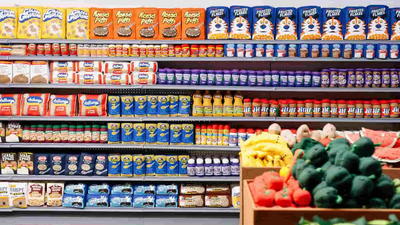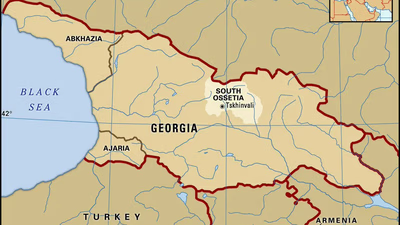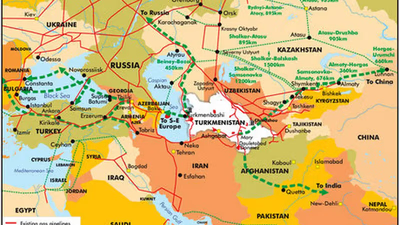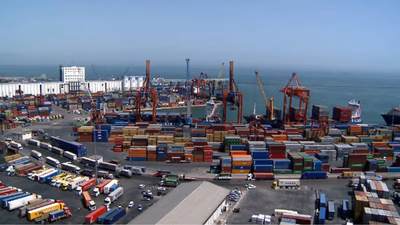
Georgia"s trade platform enhances B2B marketplace opportunities. "
Georgia has implemented simplified customs procedures to facilitate trade. These procedures aim to streamline the clearance of goods, reduce bureaucracy, and expedite the movement of goods across borders. Importers and exporters are required to submit customs declarations providing information about the goods being imported or exported. The declarations include details about the nature of the goods, their value, and other relevant information. Georgia follows the World Trade Organization's (WTO) customs valuation principles to determine the value of imported goods for customs purposes. The customs value is used to calculate customs duties and taxes.
Reaching out to local business associations, trade chambers, or consulting with legal and trade experts who specialize in Georgian trade regulations can be helpful in obtaining detailed and updated information on customs laws and export tariffs in Georgia. Some goods may be exempt from export duties in Georgia. However, certain products, particularly natural resources or specific agricultural commodities, may be subject to export duties or restrictions. The export of any product from Georgia is exempt from any taxes and duties. The customs tariff is calculated and collected according to the value of the goods that pass through the customs of this country.
Goods whose import duty is five percent:
- Cosmetics
- Types of perfumes
- Soap
- wax
- Stationery
- Types of gloves
- Electric post
- Copper
- polymer
- Plastic sheets
- Video and audio tapes
- Metal and non-metal doors and windows
- Goods whose import duty is 12%:
- Honey
- Mushrooms
- Walnut
- Saffron
- Tea
- Nuts
- Raisins
- mineral water
- Canned food
- Types of jams
- Types of eggs
- Types of beans
- Types of citrus
- Dried fruits
- A variety of fruits and juices
- Sugar and sugar products
- Any type of live poultry, including chickens and roosters
- Beef and mutton (hot, cold)
- Dairy products (milk, cream, etc.)
- Vegetables include (onions, potatoes, tomatoes, carrots, cabbage, etc.).
- Sausages
- Tobacco types
- Types of detergents
- Types of flooring
- All kinds of sanitary ware
- A variety of dishes
- Types of clothing
- Types of paper and cardboard
- Types of tanks
- Types of metal sheets
- A variety of door and window molds
- All kinds of precious metals and jewelry
- A variety of products made of wood
- A variety of construction machinery
- Types of soil, stone, cement, lime and so on
- Petroleum products such as bitumen and other tools for asphalt
Importers and exporters are required to provide necessary documentation for customs clearance, including commercial invoices, packing lists, transport documents, and any other supporting documents related to the goods being imported or exported. Georgia has a relatively low overall tariff structure. The country has been gradually reducing tariff rates to promote trade and attract foreign investment. However, specific tariff rates can vary depending on the product and its classification under the Harmonized System (HS) code. Georgia has entered into various preferential trade agreements that provide reduced or zero tariffs for specific goods. For example, under the Free Trade Agreement with the European Union (EU), many goods can be traded between Georgia and the EU member states with preferential tariff rates.
For information on customs laws and procedures, you can refer to the official website of the Revenue Service of Georgia (https://www.rs.ge/). The Revenue Service is responsible for customs administration in Georgia and can provide comprehensive and current information on customs regulations, documentation requirements, and procedures. Regarding export tariffs and trade policies, you may refer to the official website of the Ministry of Economy and Sustainable Development of Georgia (https://www.economy.ge/). The ministry oversees trade-related policies and can provide information on export tariffs, trade agreements, and other trade-related matters.
-

Georgia"s strategic location at the crossroads of Europe and Asia positions it as a vital trade hub, facilitating access to large markets in the Middle East and Central Asia. The country has established preferential trade agreements, including a Free Trade Agreement with the EU, enhancing its attractiveness for businesses. Georgia"s membership in the WTO further supports its trade relations. The government has implemented reforms to create a business-friendly environment, reducing bureaucracy and improving transparency, which has led to increased foreign investment. The proximity to emerging markets offers opportunities for companies looking to expand their customer base. Recent developments, such as the easing of trade barriers between Iran and Georgia following international agreements, have opened new avenues for import-export activities. Despite challenges faced by Iranian traders in the past, including financial transaction issues, recent changes have simplified customs procedures and reduced tariffs. This has made it easier for businesses to engage in cross-border trade.
Georgia"s ongoing investments in transportation infrastructure, including modernized ports and highways, are expected to enhance logistics capabilities further. Overall, Georgia presents significant opportunities for B2B marketplace activities and commodity trade within the region. "
-

Georgia"s strategic location at the crossroads of Europe and Asia significantly influences its population dynamics and economic activities. The country"s diverse geography, characterized by mountains, valleys, and coastal areas, affects settlement patterns and infrastructure development. With a total land area of approximately 69,700 square kilometers and a population of around 3. 7 million, Georgia exhibits low population density overall, with about 45% residing in the capital city, Tbilisi. This urban concentration leads to higher population density in the capital compared to rural areas. Tbilisi"s historical significance as part of the Silk Road enhances its role in trade and cultural exchange. The geographical features also impact access to resources and transportation networks, shaping migration patterns and socio-economic development. As Georgia seeks recognition from the European Union, its geopolitical position continues to facilitate trade routes and cultural interactions with neighboring countries such as Turkey, Armenia, Azerbaijan, and Russia.
Understanding these dynamics is crucial for businesses looking to engage in trade within the region. "
-

Georgia"s linguistic landscape is dominated by the Georgian language, which is integral to its national identity and governance. The country also hosts a variety of languages, including Russian and Armenian, reflecting its cultural diversity. Eastern Orthodox Christianity is the predominant religion, influencing social dynamics and political discourse. Georgia"s economy has evolved since its independence in 1991, focusing on market-oriented reforms that attract foreign investment in sectors like agriculture and tourism. Despite these advancements, challenges such as high unemployment (13. 6%) and poverty (31%) persist. The political framework is a parliamentary republic with a multi-party system, where economic policies are shaped by political developments. Georgia"s trade includes imports of fuel and machinery from countries like Russia and Turkey, while exports feature products such as mineral water and fruits to various international markets. Understanding these dynamics is crucial for businesses looking to engage in the region"s trade opportunities.
-

Georgia has streamlined its customs procedures to enhance trade efficiency, reducing bureaucratic hurdles for importers and exporters. Customs declarations are mandatory, detailing the nature and value of goods. The country adheres to WTO customs valuation principles for determining the customs value, which is essential for calculating duties and taxes. Certain goods may be exempt from export duties, while others, particularly natural resources and specific agricultural products, may incur restrictions or tariffs. Import duties vary by product category; for instance, cosmetics and certain food items have a 5% duty, while others like honey and dairy products face a 12% duty. Documentation such as commercial invoices and packing lists is required for customs clearance. Georgia"s tariff structure is relatively low, with ongoing reductions to attract foreign investment. The country has established preferential trade agreements that offer reduced or zero tariffs on specific goods traded with EU member states.
For detailed information on customs laws and export tariffs, businesses can consult the Revenue Service of Georgia or the Ministry of Economy and Sustainable Development. "
-

Georgia"s economy heavily relies on imports, particularly energy resources like natural gas and oil products, alongside machinery and industrial goods essential for various sectors including agriculture and construction. The country also imports consumer goods such as electronics, clothing, and food products to meet domestic demand. Notably, the automotive sector sees significant imports of vehicles and parts. Georgia"s exports include agricultural products like wine and nuts, as well as minerals such as copper and gold. Despite challenges in trade relations with Iran, there is potential for increased exports from Iran to Georgia. The establishment of a company in Georgia"s free trade zones can streamline import-export processes. Economic reforms over the past decade have bolstered Georgia"s trade attractiveness, with foreign trade reaching $826. 8 million in January 2019 alone.
Key trading partners include the EU, Turkey, Russia, and neighboring Caucasus countries. The Deep and Comprehensive Free Trade Agreement (DCFTA) with the EU has enhanced market access for Georgian goods.
-

Georgia presents diverse trade opportunities across various sectors, including agriculture, tourism, manufacturing, and energy. The agricultural sector is notable for its high-quality products like wine and nuts, with potential for modernization and export growth. The tourism industry is thriving, particularly in Tbilisi and Batumi, creating demand for hospitality services. Manufacturing benefits from Georgia"s strategic location and low labor costs, with industries such as textiles and automotive components showing promise. The construction sector is also expanding due to urban development needs. Despite challenges in advertising costs exceeding production expenses, the free economic system encourages business ventures. Trade relations with Iran are evolving, focusing on goods like meat and wood products. Additionally, Georgia"s energy sector offers investment opportunities in hydroelectric power and renewables. The IT industry is rapidly growing, supported by government initiatives aimed at fostering innovation through technology parks and incubators.
-

Imports from Georgia to Iran are primarily focused on specific products, notably meat, beech wood, ferro-manganese, and machinery. The total value of imports from Georgia to Iran is approximately $40 million. Despite the potential for increased trade, economic exchanges are hindered by a lack of awareness among economic delegations regarding investment opportunities. Recent agreements between Tehran and Tbilisi aim to eliminate taxes and enhance transport investments. Iran views Georgia as a strategic alternative route for cargo transport to Europe. Current imports include various goods such as tractors, metalworking machines, and cars, with the latter being attractive due to lower prices in Georgia compared to Iran. However, importing cars requires compliance with legal procedures. Goods imported from Georgia fall into three categories: authorized goods that do not require licenses, conditional goods needing licenses (like wheat), and prohibited goods under Islamic law (such as alcohol).
The importation of live cattle has also gained traction due to local production in Georgia. Quality assurance is crucial when importing industrial goods; thus, it is recommended to source products from reputable manufacturers. Additionally, Georgia"s political stability enhances its appeal for traders engaged in import-export activities. "







